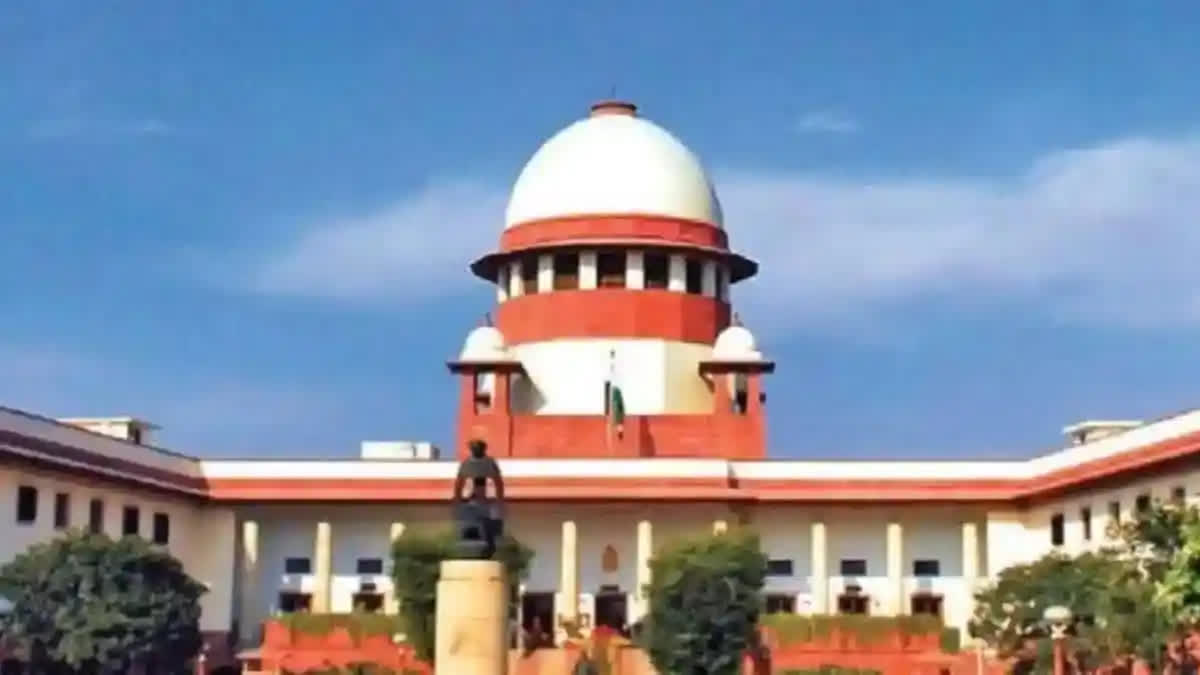New Delhi: A five-judge Constitution bench led by Chief Justice of India D Y Chandrachud on Thursday set aside a 2018 decision of the apex court, which directed every order of stay in a civil or criminal trial would have a maximum life of six months.
The top court stressed that Article 142 does not empower this court to ignore the substantive rights of the litigants and the right to be heard before an adverse order is passed is not a matter of procedure but a substantive right. "The power of this court under Article 142 cannot be exercised to defeat the principles of natural justice, which are an integral part of our jurisprudence," said the apex court.
In 2018, the Supreme Court had held that the stay granted by a lower court or High Court in civil and criminal cases will automatically expire after six months unless extended specifically.
The bench led by CJI and comprising Justices Abhay S Oka, J B Pardiwala, Pankaj Mithal and Manoj Misra, had reserved the judgment, in December last year, on the petitions filed by the High Court Bar Association Allahabad and others. Justice Mithal wrote a separate judgment concurring with the majority judgment.
The apex court said: "We hold that there cannot be automatic vacation of stay granted by the High Court. We do not approve the direction issued to decide all the cases in which an interim stay has been granted on a day-to-day basis within a time frame. We hold that such blanket directions cannot be issued in the exercise of the jurisdiction under Article 142 of the Constitution of India".
The bench said a direction that all the interim orders of stay of proceedings passed by every High Court automatically expire only by reason of lapse of time cannot be issued in the exercise of the jurisdiction of this Court under Article 142 of the Constitution.
The top court cited the important parameters for the exercise of the jurisdiction under Article 142 of the Constitution which are relevant for deciding the reference.
"The jurisdiction can be exercised to do complete justice between the parties before the court. It cannot be exercised to nullify the benefits derived by a large number of litigants based on judicial orders validly passed in their favour who are not parties to the proceedings before this court," said the bench.
"Article 142 does not empower this court to ignore the substantive rights of the litigants. While exercising the jurisdiction under Article 142 of the Constitution of India, this court can always issue procedural directions to the courts for streamlining procedural aspects and ironing out the creases in the procedural laws to ensure expeditious and timely disposal of cases," said the bench, in its 53-page judgment.
The bench said however, while doing so, this court cannot affect the substantive rights of those litigants who are not parties to the case before it and the right to be heard before an adverse order is passed is not a matter of procedure but a substantive right.
The bench said constitutional courts, in the ordinary course, should refrain from fixing a time-bound schedule for the disposal of cases pending before any other courts.
"Constitutional Courts may issue directions for the time-bound disposal of cases only in exceptional circumstances. The issue of prioritising the disposal of cases should be best left to the decision of the concerned courts where the cases are pending," it said.
"We clarify that in the cases in which trials have been concluded as a result of the automatic vacation of stay based only on the decision in the case of Asian Resurfacing, the orders of automatic vacation of stay shall remain valid," it said.
During the hearing, senior advocate Rakesh Dwivedi, representing the High Court Bar Association of Allahabad, had argued against the automatic vacation of stay orders and stressed that such a mechanism could interfere with the constitutional structure, particularly Article 226, and may be seen as judicial legislation.
He suggested creating separate benches to consider extensions, while citing the importance of a nuanced approach to different case types. Dwivedi cited delay in court proceedings, specifically in certain High Courts such as the Allahabad High Court and the Patna High Court.
Solicitor General Tushar Mehta highlighted instances where contempt cases were filed against judges, for not resuming trials on the strength of Asian Resurfacing, particularly in states like Punjab and Haryana.
On December 1, the Supreme Court expressed reservations with its 2018 judgment on the 'Asian Resurfacing case'. The judgment had ordered that there would be automatic lifting of stay in all civil and criminal matters upon expiry of six-month time. The previous judgment in case of 'Asian Resurfacing of Road Agency Vs CBI' was delivered on March 28, 2018 by a bench of Justices Adarsh Kumar Goel, R F Nariman and Navin Sinha (all since retired).


